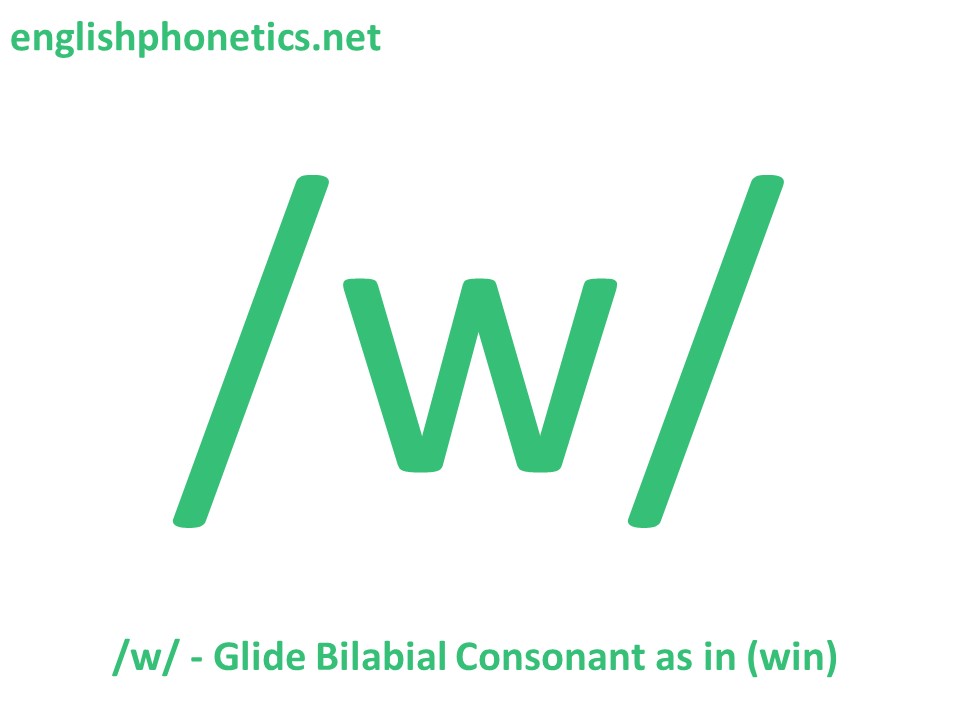Spelling:
- "w" - win, switch
- "wh" - white, when
- "u" - quit, persuade
LISTEN
The sound /w/ is in these clusters:
-
Beginning of a Syllable
| w_initial_clusters.mp3 |
/sw/ ("sw") - switch
/tw/ ("tw") - twice
/dw/ ("dw") - dwell
/skw/ ("squ") - square
-
End of a Syllable
| grammar_-w-_1.mp3 |
Most "wh-" question words in English begin with /w/:
- When
- Where
- Why
- Which
COMPARE
| compare_w-v_1.mp3 |
Both /v/ and /w/ are voiced consonants that involve lip movement. However, /v/ is a voiced labiodental consonant, and /w/ is a bilabial glide. When you pronounce /w/, your lips should form a circle and move to an open position, without touching your teeth. However, when you pronounce /v/, your upper lip should rub against your lower teeth.
You can hear the difference between /w/ and /v/ in these words.
| compare_w-v_words.mp3 |
2. A. went, B. vent
3. A. wine, B. vine
4. A. west, B. vest
5. A. wheel, B. veal
6. A. wary, B. very
Now, compare /w/ with /b/:
| compare_w-b_1.mp3 |
These are both voiced bilabial consonants. However, /w/ is a glide and /b/ is a stop. When you pronounce /w/, your lips should not touch each other and the air in your mouth should not stop.
You can hear the difference between /w/ and /b/ in these words.
| compare_w-b_words.mp3 |
2. A. white, B. bite
3. A. what, B. but
4. A. await, B. abate
5. A. rewind, B. rebind
6. A. wobble, B. bauble
| words_with_-w-.mp3 |
|
1. what
2. way 3. win 4. word 5. switch 6. twice 7. dwell 8. queen 9. weather 10. whisper |
11. waterfall
12. away 13. unwise 14. rewind 15. between 16. require 17. unswerving 18. underwater 19. aware 20. westward |
Now, practice /w/ in sentences. Say the words first, then the sentences.
| sentences_with_-w-.mp3 |
The weather will be very wet tomorrow.
2. what - want - watch
What do you want to watch this evening?
3. working - whisper - quietly
Other people are working, so please whisper quietly.
4. quick - walk - between
I often take a quick walk between classes.
5. sweater - will - warm - winter
A sweater will keep you warm in winter.
6. were - aware - requirements
Were you aware of the requirements?
To practice with different varieties of English, choose another native English speaker by clicking one of the links below:


